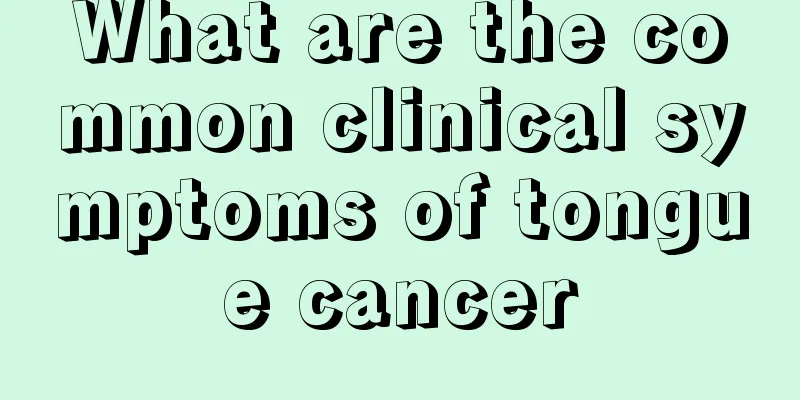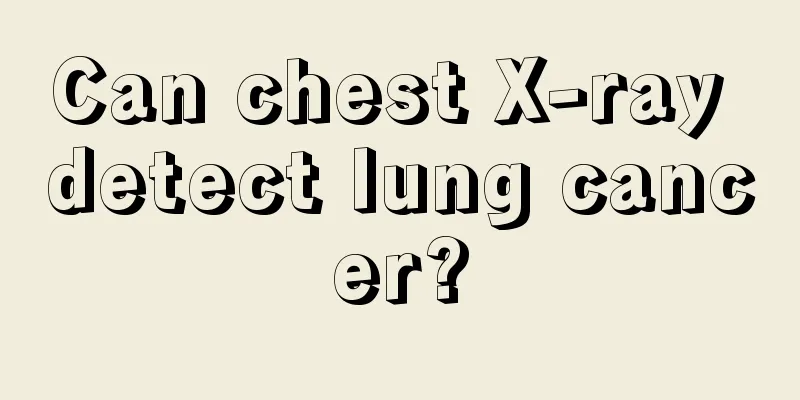What are the common clinical symptoms of tongue cancer

|
Cancer is frightening. It can occur in any part of the human body. There is a type of oral cancer called tongue cancer, which is not very familiar to everyone. Today we will learn about the symptoms of tongue cancer, which will facilitate early detection and early treatment in life. Let's take a look at the common clinical symptoms of tongue cancer: 1. Sudden appearance of mucosal erythema, edema, erosion, white spots and fissures, flat tongue lichen, protrusions and granular granulations in the oral cavity. Although there is no obvious discomfort, after 2 to 4 weeks of treatment, the symptoms not only fail to heal, but slowly spread and increase in size. 2. Sudden loosening and falling of teeth, poor bite when chewing food, discomfort of dentures for those with dentures, numbness and pain in the mouth and pharynx, and no improvement after general symptomatic treatment. 3. Long-term unhealed ulcers appear on the oral mucosa, and the mucosa becomes pale and dull, similar to leukoplakia, and fibrous nodules occur under the mucosa. 4. Localized thickening and scaling of the lip vermilion mucosa, accompanied by grayish-white keratotic plaques. 5. There are multiple unexplained bleeding in the mouth and difficulty opening and closing the mouth. 6. Sudden onset of increased salivation, drooling, bloody nasal discharge, choking sensation when swallowing, maxillofacial lumps and swollen lymph nodes, which persist and even gradually worsen. Small nodules on the mucosa gradually form obvious lumps and ulcers. When combined with infection, severe pain occurs, with a radiating sensation to the face and ear on the same side. When tongue cancer invades the floor of the mouth, tongue movement is restricted, the tongue is fixed, eating becomes difficult, and speech becomes unclear. 1. The local area is ulcerative or infiltrative, grows fast, and in the later stage there are spontaneous pain, tenderness and radiating pain, tongue numbness, movement and swallowing disorders. 2. It is more common on the edge of the tongue, followed by the tip, back and root of the tongue. 3. Chronic irritation factors may be found near the tumor, such as poor restorations, residual roots, residual crowns, sharp crown edges, etc. 4. In the early stage, enlarged lymph nodes in the neck can be felt. |
<<: What are the consequences of tongue cancer recurrence
>>: Detailed explanation of the causes of tongue cancer recurrence
Recommend
Transient myocardial ischemia symptoms
Many people pay more attention to heart health, b...
Some precautions after gastric cancer surgery
In the current situation in China, the incidence ...
What is the reason for herpes on the back
The back is a relatively sensitive part of the hu...
What is the difference between waist pregnancy and belly pregnancy
For many pregnant mothers, they will observe thei...
What to do if there is white sticky secretion on the lips in the morning
If you find white mucus secretion on your lips wh...
Be careful that rhinitis may develop into nasopharyngeal cancer!
At present, the number of people suffering from r...
The harm of not extracting tooth roots
Tooth decay is a common problem faced by people. ...
Six dietary principles for colorectal cancer
Colorectal cancer is a common malignant tumor of ...
Early diagnosis of nasopharyngeal carcinoma is very important
The lesions of nasopharyngeal carcinoma are deep ...
Why does wolfberry turn red when soaked in water?
Many people who use wolfberries to make wine or w...
What are the dangers of wearing a wig
It is said that the glamorous Adam Cheng on stage...
Why do some medicines prohibit smoking and drinking? Do you know these medicines?
People should pay special attention to not smokin...
What are the side effects of chemotherapy for small cell lung cancer? These side effects need attention
The side effects of chemotherapy for patients wit...
What is squamous intraepithelial lesion
Squamous intraepithelial lesion, a word that soun...
What are the symptoms of epididymitis and seminal vesiculitis?
Epididymitis and seminal vesiculitis are the two ...









